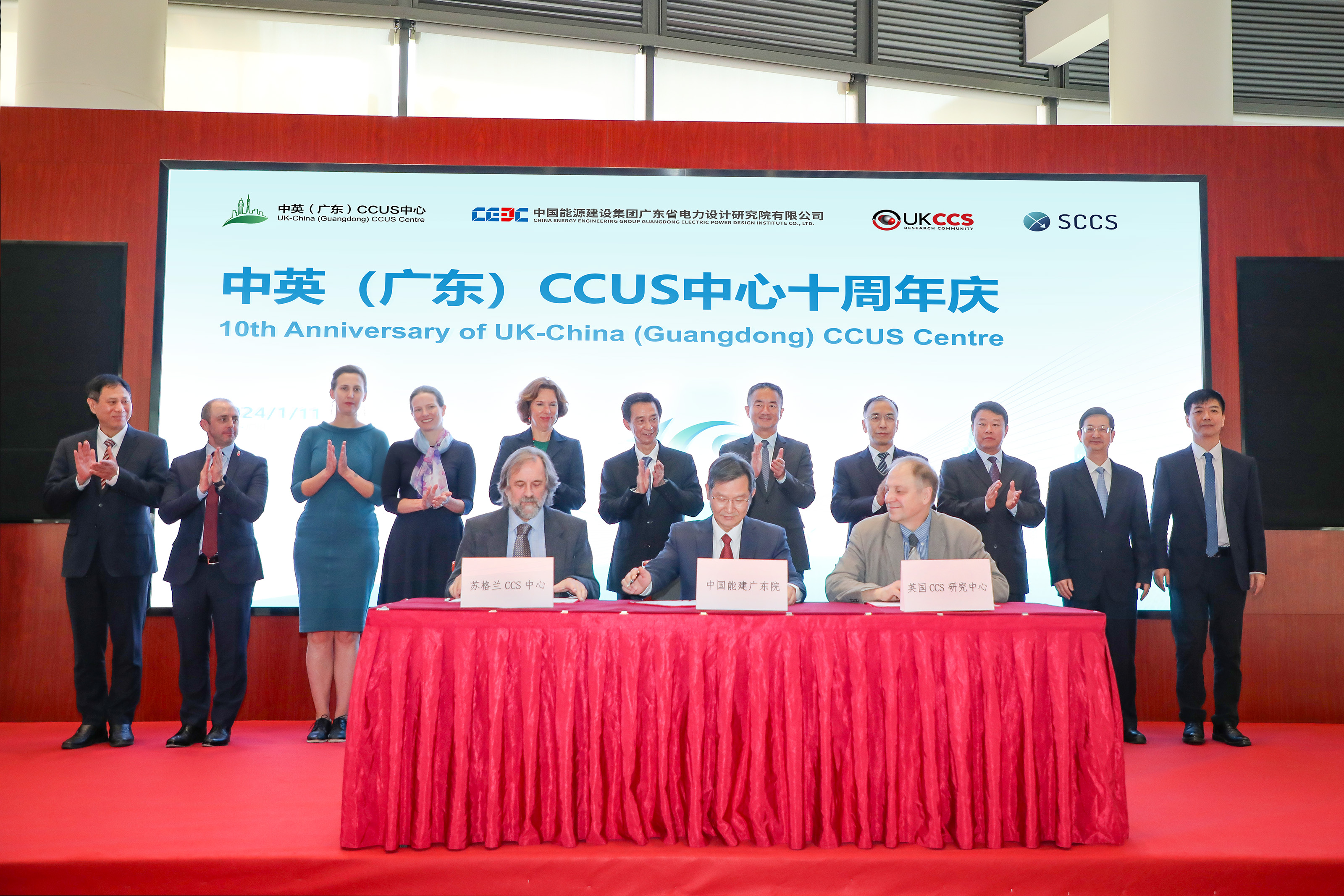In January, SCCS Director Professor Stuart Haszeldine was invited to speak at the tenth anniversary celebration of the UK-China (Guangdong) CCUS Industry Promotion and Academic Collaboration Centre, developed in July 2013 following a UK Government research grant awarded to The University of Edinburgh Business School. With its secretariat team based at Guangdong Electric Power Design Institute in Guangzhou, The Centre is a hub for high quality research and engineering activities including CCUS demonstration projects development in South China.
Supported by both Guangdong and UK government departments, with significant contribution from colleagues at University of Edinburgh, the UK-China (Guangdong) Carbon Capture, Utilisation and Storage Industry Promotion and Academic Collaboration Centre (UK-China (Guangdong) CCUS Centre) was officially founded on December 18th, 2013. Scottish Carbon Capture and Storage (SCCS) is one of the founding partners, along with China Energy Engineering Construction Group, Guangdong Electric Power Design Institute (GEDI), Clean Fossil Energy Development Institute (CFEDI) and the Sheffield-based UK CCS Research Centre (UKCCSRC).
The MoU was signed by Professor Stuart Haszeldine (SCCS Director), Xueping PENG (GEDI General Manager) and Professor Jon Gibbins (UKCCSRC Director).
Stuart Haszeldine said “together with UKCCSRC, SCCS refreshed our memorandum of understanding with the Centre in Guangzhou, pledging continued collaboration in research that aims to accelerate global CCUS deployment. My presentation reflected on the need to train more staff in preparation for CCS rollout (assisted by the SCCS MOOC in Mandarin). And especially on the progress made by Guangdong in the past 10 years – including one of the worlds three solvent test facilities for CCS and the only one operating at a commercial power plant Haifeng, with 20kt/yr CO2 test capacity. Also the first Chinese injection of CO2 into storage offshore at the Enping oilfield. As well asdvanced planning to construct 10Mt/yr CCUS project as part of clean hydrogen manufacture in the Daya Bay coastal oil refinery. And geological investigations of CO2 storage in basalt, where we hope to co-operate initially with MSc projects drawn from SCCS member Universities”
China has undertaken more than 100 design and pilot projects on all aspects of CCS, currently capturing 6 Mt/yr CO2. When it judges the time to be right, China is capable of large-scale proactive investment in CCS to decarbonise its energy sector and industries. Research and pilot studies through the centre have been pivotal to delivering ambitions in Guangdong province and in China. Once again, SCCS’ willingness to collaborate in research and technology progression is highlighted.
Image credit: GDCCUS.
Stuart Haszeldine (SCCS), Peng Xueping (GEDI) and Jon Gibbins (UKCCSRC) exchange a Memorandum of Understanding.


